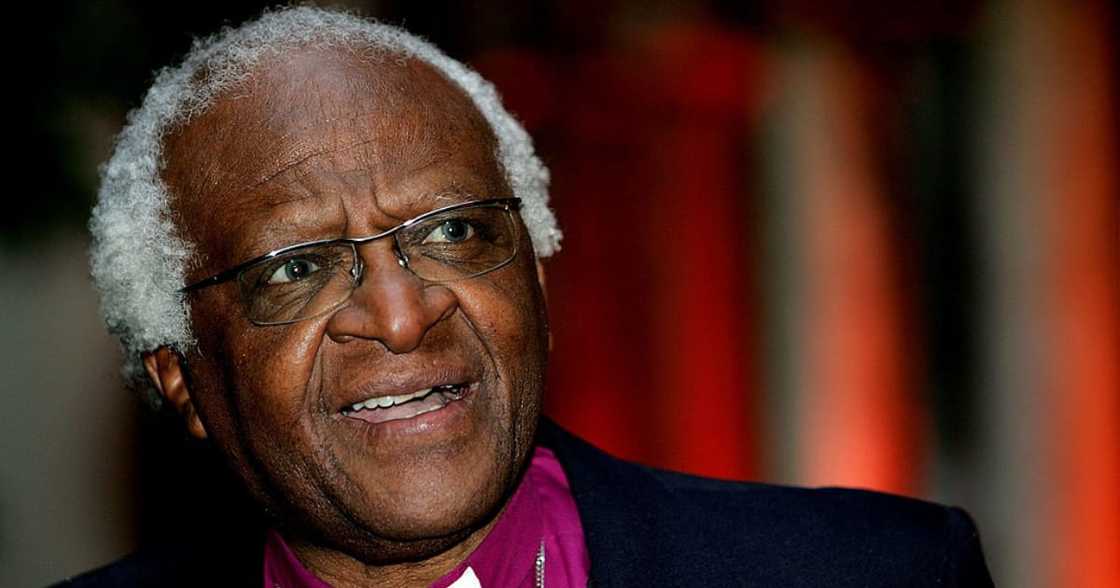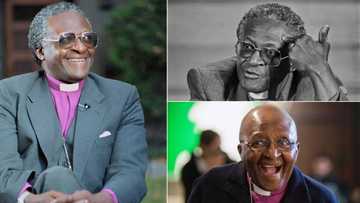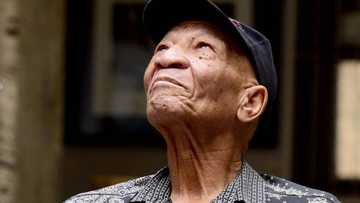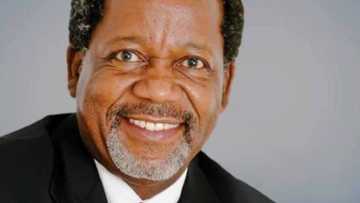Breaking News: Archbishop Desmond Tutu, 90 Dies at His Cape Town Home
- Archbishop Desmond Tutu has died at his Cape Town home on Sunday, 26 December 2019
- Tutu was the last surviving South African laureate of the Nobel Peace Prize who first coined the phrase "Rainbow Nation" and will be greatly missed
- The office of the Presidency this morning shared a heartfelt statement in honour of the late struggle icon
PAY ATTENTION: Click “See First” under the “Following” tab to see Briefly News on your News Feed!
Archbishop Desmond Tutu, the last surviving South African laureate of the Nobel Peace Prize, has passed away at his Cape Town home. The office of the presidency made the announcement on Sunday, 26 December.

Source: Getty Images
In a statement issued this morning, minister in the presidency Mondli Gungubele shared that President Cyril Ramaphosa has expressed his sadness at the news. On behalf of the nation, he's sent his deepest condolences to Mam Leah Tutu, the Tutu family, and the friends and comrades of the late struggle icon, Business Day reports.
“The passing of Archbishop Emeritus Desmond Tutu is another chapter of bereavement in our nation’s farewell to a generation of outstanding South Africans who have bequeathed us a liberated SA.
“Desmond Tutu was a patriot without equal; a leader of principle and pragmatism who gave meaning to the biblical insight that faith without works is dead," the statement read in part.
Enjoy reading our stories? Download the BRIEFLY NEWS app on Google Play now and stay up-to-date with major South African news!
According to News 24, Archbishop Emeritus Desmond Tutu was 90 at the time of his passing. He's survived by his wife Leah, their four children and his many grandchildren.
On Desmond Tutu's 90th birthday, we take a look at his most incredible moments
In related news, Briefly News previously reported that in honour of Desmond Mpilo Tutu's milestone 90th birthday, let's take a look at the greatest moments from this South African legend.
The following information was gathered from an article first published by IOL.
1. The moment he decided to become an Anglican priest
Archbishop Desmond Tutu's first interaction with an Anglican priest was Trevor Huddleston who was a white man relentlessly opposed to apartheid. One day, the priest tipped his hat to Tutu's mother as a sign of respect. This was unusual considering the unequal and brutal times. Tutu was only nine-years-old at the time, and when he found out who Trevor was, he decided he would one day become an Anglican priest too and lead his life as a man of God.
2. Fighting against Bantu Education
When the Bantu Education Act of 1953 was implemented by the apartheid government, it sought to entrench an inferior education system for black students. Around this time, Tutu obtained a diploma in teaching and a bachelor's degree in arts. After three years as an educator, he couldn't handle the affects of Bantu education on black youth and quit his profession to protest against the act.
3. The beginning of the priesthood
No longer a teacher, Tutu began his journey on a new path that defined the rest of his life. He enrolled at St Peter’s Theological College where he was ordained as a deacon in 1960, and in 1961, he became a priest. The following year, he began studying towards his Honours and Master's degrees in Theology at King’s College, London. He qualified in 1966.
4. Early leadership roles
Tutu soon took on leadership roles which included the Bishop of the Anglican Church in Lesotho and general secretary of the South African Council of Churches. He used his influence to fight against the apartheid regime and was in full support of freedom, equality and democracy.
5. Proactive against segregation
In 1976, South Africa was under the leadership of Prime Minister John Vorster. During this time, Tutu wrote a letter to the prime minister detailing a possible uprising. This uprising soon came into fruition on 16 June, a day everyone in the country remembers as Youth Day. After this, the apartheid government felt that Tutu was too influential and outspoken, so they revoked his passport. However, the international community spoke out against this and the government reissued his passport. This allowed Tutu to continue rallying support around the world against the regime.
Source: Briefly News




